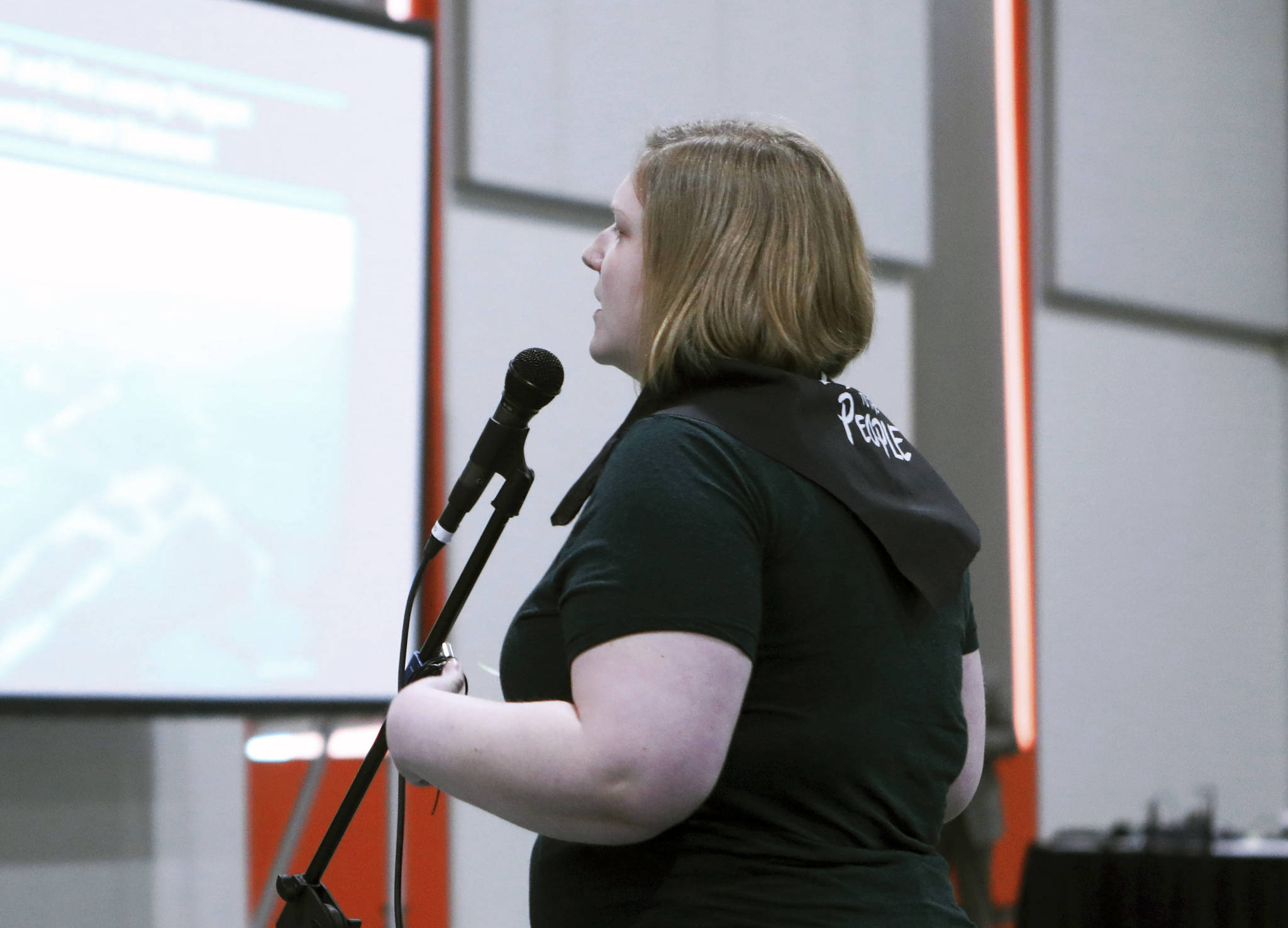ANCHORAGE — Protesters in Alaska urged federal officials to keep oil rigs out of the Arctic National Wildlife Refuge despite a federal law requiring lease sales in the wilderness area.
At a Bureau of Land Management environmental review hearing in Anchorage, Laura Herman urged that no drilling be allowed because of the effects of extraction on the region and the long-term effects of burning the fossil fuel.
Herman, 29, said she was too young to be telling “old-timer” stories about how cold it used to be in Alaska, but she did say signs of climate change are all over her home state.
“If you’ve lived in Alaska for more than 15 years, you can see it with your own eyes,” she said.
Until last summer, she said, her family always stocked their freezer with salmon from the Copper River. However, they weren’t able to fish for salmon last summer because warming ocean temperatures did not allow sufficient salmon to return to allow spawning and fishing, she said.
The Arctic National Wildlife Refuge was created in 1960 during President Dwight Eisenhower’s administration. Congress in 1980 expanded the refuge to nearly the size of South Carolina with the provision that 2,300 square miles of the coastal plain be studied for natural resources.
The U.S. Geological Survey estimates the plain holds 10.4 billion barrels of oil.
Multiple representatives of Defend the Sacred-Alaska denounced petroleum development in the refuge for the effects it would have on the Porcupine Caribou Herd.
The coastal plain is the nursery for the herd, named for the Porcupine River. The 200,000-animal herd migrates from Canada to a strip of flat tundra in Alaska’s northeast corner between Brooks Range mountains and the Arctic Ocean.
Gwich’in Natives in Alaska and Canada depend on hunting the caribou for their subsistence lifestyle.
Siqiniq Maupin grew up in the village of Nuiqsut and said the air has been damaged by flaring of natural gas. Some Alaska Native leaders, she said, have traded clean air for dollars.
“When all of the water is gone, and all of the clean air, what are we going to do with green paper?” she said.
The BLM listed a no-action alternative for the refuge but that would ignore congressional direction, said Joe Balash, the Interior Department’s assistant secretary for land and minerals management.
Congress in December 2017 approved a tax bill that requires an oil and gas lease sale in the refuge to raise revenue for a tax cut backed by President Donald Trump.
“A no-action alternative would fly in the face of what Congress told us to do,” Balash said.
Critics are not willing to trade an intact wilderness ecosystem and scoff at the tax bill’s projections that lease sales will put more than $1 billion into federal coffers over 10 years.
Opponents also say development will create a spider web of roads and pipelines connecting drill pads, affecting acreage throughout the wilderness area.
Drilling supporters said additional production is crucial for Alaska and can be done in a manner that follows environmental law.
Carl Portman grew up in Fairbanks and said he remembered life before the trans-Alaska pipeline. The pipeline now runs at one-quarter capacity and could face premature shutdown without increased production, he said. That would be an unmitigated disaster for the state, Portman said.
“Like thousands of Alaskans, my livelihood depends on the oil and gas industry, yet I do not work directly for the industry,” he said.
Ken Federico, a carpenter, said he has worked an assortment of jobs in North Slope oil fields over four decades and watched enforcement of environmental law transition from “the Wild West” to strict. A subcontractor recently fired two truck drivers for urinating along the side of a road, he said.
“Guys lost $75,000, $80,000-a-year jobs just for taking a leak,” he said. “That’s how strong the oil companies are pushing contractors and subcontractors up there to be very concerned about the environment.”
• By DAN JOLING, Associated Press


